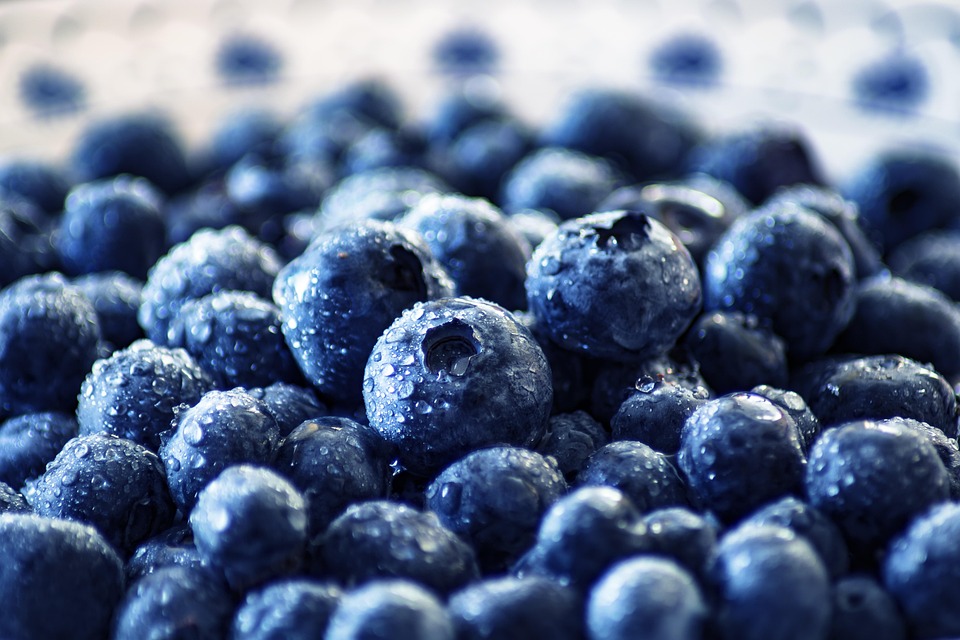Brain antioxidant fruits are the delicious, colorful allies your brain quietly thanks you for. They’re fruits rich in flavonoids, anthocyanins, vitamin C, and other compounds that lower oxidative stress and support memory circuits. That matters because memory isn’t a luxury — it’s how you hold your life, connect with people, and feel safe in your decisions.
Including brain antioxidant fruits in your routine is a small habit with outsized returns. Science links flavonoid-rich fruit to better recall, slower cognitive decline, and improved mood, so it’s worth paying attention to what you put on your plate. I’ll show you seven fruits that consistently deliver brain benefits, how to eat them, and the simple science behind their power.
Contents
- Why Brain Antioxidant Fruits Matter For Memory
- Blueberries — The Memory Superstar
- Blackberries — Deep Color, Deep Benefits
- Pomegranates — A Concentrated Source Of Polyphenols
- Red Grapes — Resveratrol And Circulation
- Cherries — Sleep, Inflammation, And Memory
- Kiwi — Vitamin C And Cognitive Clarity
- Oranges — Vitamin C With Zest
- Practical Recipes And Serving Ideas
- The Science You Can Trust
- The Bottom Line
- FAQ
Why Brain Antioxidant Fruits Matter For Memory
Antioxidants stop the biochemical rust that chips away at neurons. Free radicals and inflammation are subtle saboteurs of focus and short-term recall. When you choose brain antioxidant fruits, you lower that slow burn on your nervous system and keep neuronal networks intact.
Researchers at places like the University of Cincinnati and Harvard Health have observed measurable memory gains after regular berry consumption. That’s not hype — it’s clinical study after study pointing to real changes in verbal memory and executive function. If you want practical, food-based defenses for your cognition, these fruits give immediate culinary joy and long-term brain insurance.
How Antioxidants Protect Memory
Antioxidants neutralize free radicals and reduce inflammation, protecting synapses and myelin. Some compounds, like anthocyanins in berries, cross the blood-brain barrier and directly influence signaling pathways important for learning and memory. Eating antioxidant-rich fruit also supports vascular health, which means better blood flow to the hippocampus — the memory center of your brain.
Think of food as daily maintenance. Brain antioxidant fruits are like quality oil for an engine: they reduce wear and help performance last longer. Small, steady choices add up.
Blueberries — The Memory Superstar
Blueberries are an easy place to start. They’re loaded with anthocyanins that improve neuron signaling and reduce inflammation.
A human study showed older adults who ate blueberry juice had measurable improvements in memory tasks. That research suggests blueberries aren’t just pretty — they’re effective. Add a half cup to yogurt, oatmeal, or your morning smoothie. Frozen blueberries are affordable and just as potent.
When you reach for blueberries, you get one of the most studied and trustworthy brain antioxidant fruits. Keep a bag in the freezer and make it a habit.
Blackberries — Deep Color, Deep Benefits
Blackberries pack anthocyanins and vitamin C into every bite. Their deep color signals antioxidants that support both neural repair and mood regulation.
Try a simple snack bowl with blackberries, a sprinkle of nuts, and a dusting of cinnamon. The fiber helps steady blood sugar and the antioxidants support long-term cognitive resilience. Blackberries are another of the brain antioxidant fruits you can eat guilt-free and without fuss.
Pomegranates — A Concentrated Source Of Polyphenols
Pomegranate seeds and juice contain punicalagins and other polyphenols that reduce oxidative stress. Animal studies show pomegranate extract can help preserve memory pathways after injury, and human data points to benefits for overall cognitive health.
Add seeds to salads, yogurt, or roasted vegetables, or enjoy a splash of 100% pomegranate juice. Pomegranates are an elegant way to introduce powerful brain antioxidant fruits into special meals or everyday bowls.
Red Grapes — Resveratrol And Circulation
Red grapes bring resveratrol, flavonoids, and a boost to microcirculation. Better blood flow means more oxygen and nutrients to memory centers. Some studies link grape polyphenols to improved memory and slowed cognitive aging.
Slice grapes into cottage cheese, blend them into cold soups, or freeze them for a refreshing snack. Red grapes are classic brain antioxidant fruits that help maintain vascular and neuronal health.
Cherries — Sleep, Inflammation, And Memory
Tart cherries are anti-inflammatory and support sleep through natural melatonin content. Good sleep clears metabolic waste from the brain and consolidates memory — so cherries support memory both directly and indirectly.
Blend tart cherry into a smoothie, nibble them frozen, or add them to a grain bowl. When you include cherries among your brain antioxidant fruits, you’re also investing in the nightly work your brain needs to remember.
Kiwi — Vitamin C And Cognitive Clarity
Kiwi is small but mighty. Its vitamin C content rivals citrus and supports neurotransmitter synthesis and antioxidant defenses. Vitamin C is essential for the proper function of dopamine and other chemical messengers tied to attention and memory.
Slice kiwis into fruit salads, tuck them into packed lunches, or add them to green smoothies. Kiwi is one of the less-celebrated brain antioxidant fruits that quietly supports mental sharpness.
Oranges — Vitamin C With Zest
Oranges and other citrus fruits are rich in vitamin C and flavonoids like hesperidin that support blood vessel health and reduce brain inflammation. Better vascular tone supports memory circuits and overall cognitive resilience.
Keep an orange in your desk drawer, squeeze fresh juice, or zest the peel into salads. Oranges are familiar, accessible brain antioxidant fruits that make healthy eating simple and joyful.
How To Eat More Brain Antioxidant Fruits — Practical Tips
- Prioritize variety: rotate berries, pomegranate, citrus, and tropical fruits through your week to cover a broad mix of antioxidants.
- Make fruit part of a meal: pair fruit with protein or healthy fat to stabilize blood sugar and maximize nutrient absorption.
- Use frozen fruit: frozen blueberries or cherries are convenient and retain most antioxidant power.
- Blend, don’t overcook: heat can degrade some antioxidants. Add berries at the end of cooking or enjoy them raw or lightly warmed.
Small habits beat big promises. A daily handful, a fruit-forward breakfast, or a colorful dessert is easy to keep up and builds cumulative brain protection.
Pairing Food And Lifestyle For Memory
Brain antioxidant fruits are powerful, but they work best with other smart choices. Good sleep, regular movement, social connections, and cognitive challenges amplify the benefits of antioxidant-rich food. For example, a walk after a fruit-accented lunch promotes blood flow and memory consolidation.
Integrating fruit with these habits creates a whole lifestyle that supports sharper thinking and steadier moods. Don’t treat fruit as a lone fix — make it part of a life you can enjoy.
Practical Recipes And Serving Ideas
- Morning boost: blend frozen blueberries, a banana, spinach, and unsweetened almond milk for a quick, antioxidant-rich smoothie.
- Lunch bowl: toss pomegranate seeds into a grain bowl with leafy greens, roasted chicken, and walnuts.
- Snack plate: plate blackberries, apple slices, and a small wedge of cheese for balanced energy and brain support.
Make eating these brain antioxidant fruits effortless. Pre-wash berries, portion into snack bags, and plan one fruit-forward meal each day.
The Science You Can Trust
If you want depth, read the trials and reviews: research published on PubMed, overviews from Harvard Health, and guidance from NIH-backed resources all converge on one point — flavonoid-rich fruits improve brain health markers in both animal and human studies. These are not trends. These are repeatable effects observed across populations.
When clinical teams in universities publish consistent signals, I pay attention. So should you. The evidence supports making these fruits regular in your life.
The Bottom Line
Brain antioxidant fruits are a delicious, practical way to protect memory and sharpen thinking. They deliver flavonoids, vitamin C, and polyphenols that reduce inflammation, support circulation, and preserve neural communication. Make a daily habit of berries, pomegranate, grapes, cherries, kiwi, and citrus — and pair them with sleep, movement, and mental challenge for the biggest payoff.
You don’t need perfection. You need consistency and good tastes that stick. Start by adding one extra serving of brain antioxidant fruits today and notice how small changes give you more clarity and confidence tomorrow.
Be brave with your choices and kind to your habits. Your brain will thank you.
FAQ
Which fruit is best for memory?
Blueberries are among the most studied and show consistent benefit, but a mix of berries, pomegranate, and grapes offers a broader range of protective compounds. Aim for variety rather than a single “best” fruit.
How much fruit should I eat for brain benefits?
Aim for at least one to two servings of antioxidant-rich fruit daily. Consistency matters more than large single doses — small servings across days build cumulative protection.
Can fruit supplements replace whole fruit?
Whole fruit provides fiber, texture, and a mix of nutrients that supplements can’t fully mimic. Supplements may help in specific cases, but whole fruit should be the first choice for everyday brain support.
Are frozen fruits as good as fresh?
Yes. Frozen fruit is often flash-frozen at peak ripeness and retains most antioxidants. It’s a convenient, cost-effective way to keep brain antioxidant fruits on hand.
— — —
References
Harvard Health Publishing provides a useful overview of berries and brain health, explaining how flavonoids support memory and cognitive function (http://www.health.harvard.edu/mind-and-mood/how-blueberries-can-help-keep-your-brain-young).
A clinical trial from the University of Cincinnati reported improved memory in older adults after blueberry supplementation, offering real-world evidence of fruit-based cognitive benefits (http://www.ncbi.nlm.nih.gov/pmc/articles/PMC3650516/).
The National Institutes of Health hosts research summaries and articles on antioxidants, flavonoids, and brain aging that explain the biochemical mechanisms behind dietary protection (http://www.ncbi.nlm.nih.gov/pubmed/21383613).
The Alzheimer’s Association discusses lifestyle factors, including diet and fruit intake, that influence cognitive decline and dementia risk (http://www.alz.org/research).








